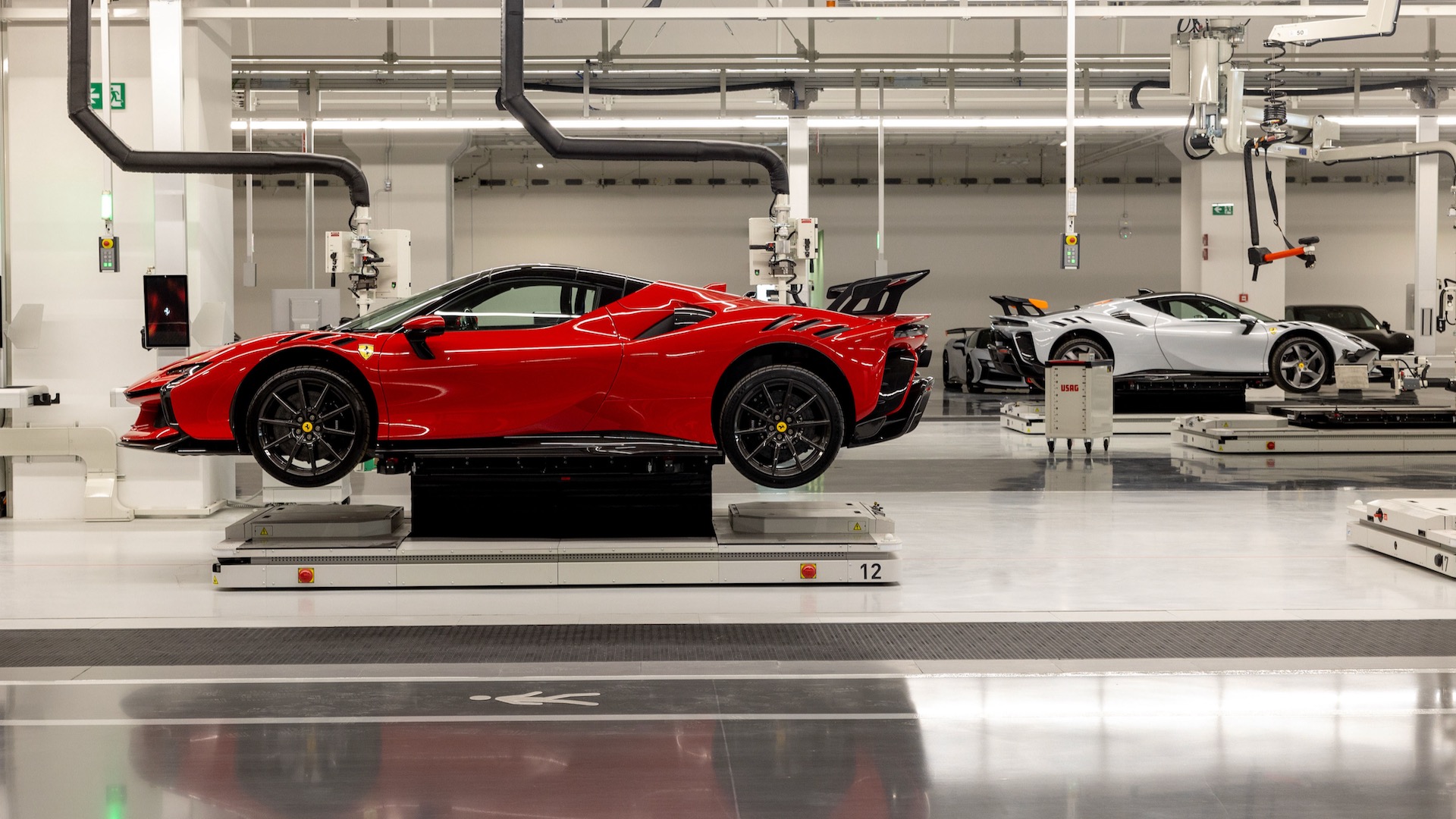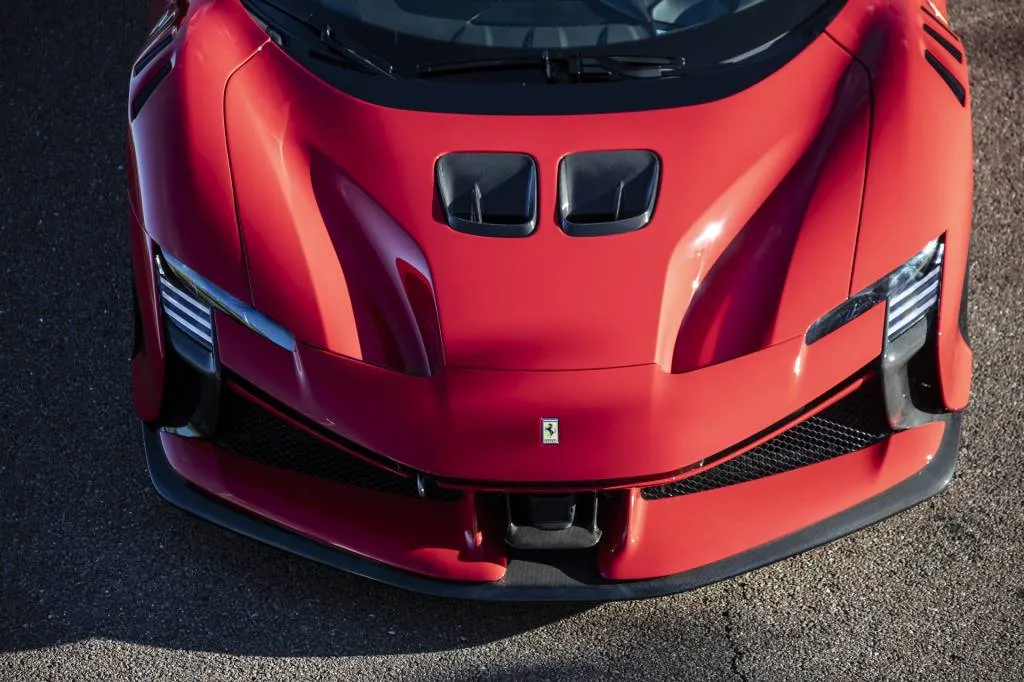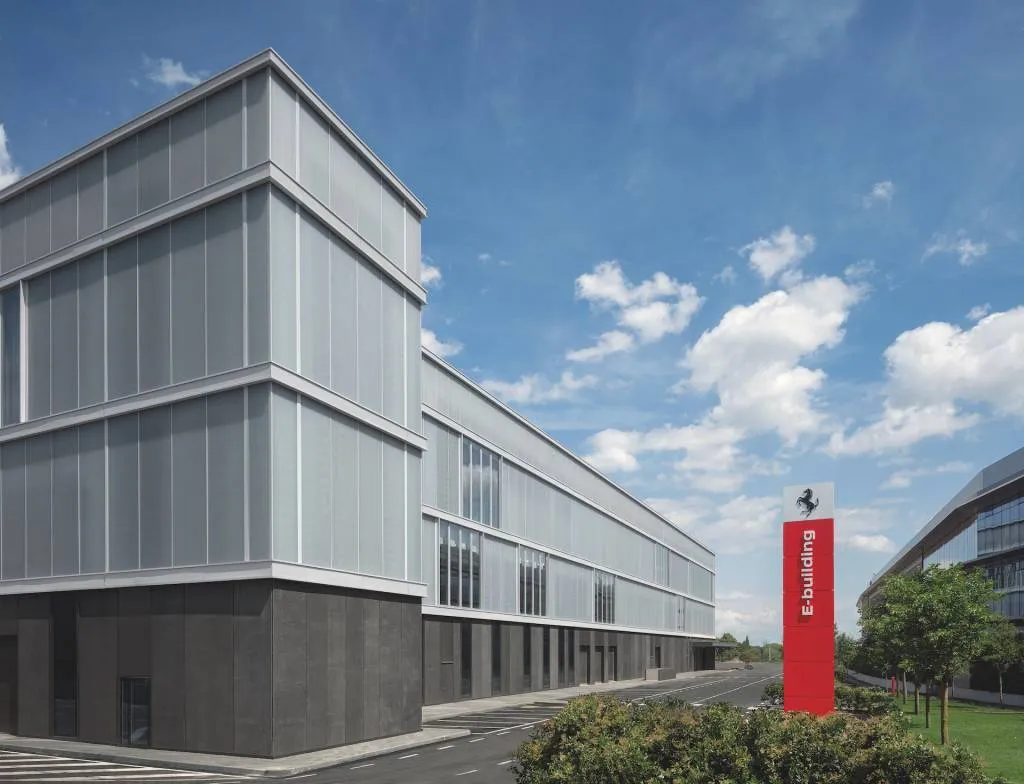

Ferrari may offer $7,500 subscription for EV battery service, replacement
- Report suggests Ferrari will offer an annual subscription for its EV battery warranty
- The subscription would cost about $7,500 per year
- It would include battery replacements after eight years
Ferrari plans to launch its first electric vehicle next year, and the company may offer an extended warranty for the battery to ease concerns of buyers looking to make the switch from gas to electrons. It could also establish a new source of revenue for the company.
Citing people familiar with the matter, Bloomberg reported on Wednesday that Ferrari is readying a battery extended warranty for both its future EVs and hybrids.
Per the report, the warranty would be offered in the form of an annual subscription costing around 7,000 euros (approximately $7,500). It would cover all aspects of maintaining the battery, as well as defects related to the battery.
It would also include regularly scheduled battery replacements after eight years, ensuring there’s no major loss in performance over the life of the vehicle. This is vital for Ferrari, whose cars are often kept on the road for decades.

Ferrari SF90 XX Stradale
Ferrari’s cars currently include a standard three-year factory warranty. For hybrid models, this warranty extends to five years, covering the battery and related components. According to Bloomberg’s sources, Ferrari’s EVs will also receive this standard level of coverage.
Most automakers with EVs are offering warranties around eight years for the battery, including pure-play EV companies like Rivian and Tesla.
Ferrari hasn’t said much about its first EV, apart from it debuting in late 2025 and starting volume production the following year. It’s thought to be a low-slung SUV, like the V-12-powered Purosangue, and will cost more than $500,000, according to a report earlier this month from Reuters. Such a price will make it one of the most expensive Ferraris that is not in limited production.

Ferrari e-building
Production of the EV, and future EVs from the automaker—a second is thought to already be in the works—will be handled at a new plant dubbed the E-Building located next to Ferrari’s existing plant in Maranello, Italy. The plant’s flexible production system means gas, hybrid, and electric vehicles can be built there, allowing Ferrari to adjust the mix depending on demand.
The additional capacity provided by the plant will allow Ferrari to increase its annual production to approximately 20,000 vehicles, up from the current 14,000.
Add a comment Cancel reply
Comments (0)
Related posts


Electric SUVs: Top 6 Models for Family Trips











